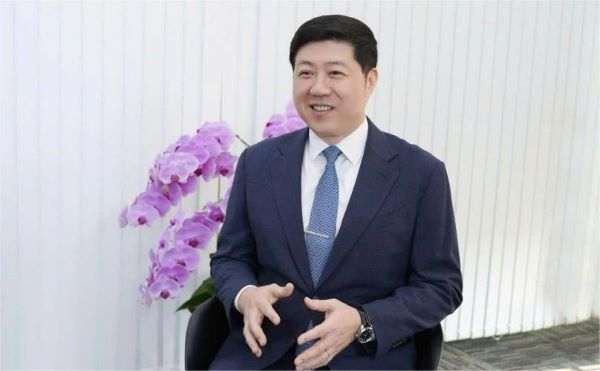
In the intricate dance of global finance, Vietnam’s stock market stands at a pivotal juncture. Despite recent foreign capital exoduses and dwindling liquidity, the year 2025 looms as a potential turning point. Chen Chia Ken, CEO of Phu Hung Securities JSC, observes that while the VN-Index has risen nearly 8% since the end of 2023, foreign investors have persistently been net sellers, with total net sales reaching billions of US dollars.
This exodus is not without cause. The global economic landscape remains complex, and Vietnam’s stock market growth has been modest compared to major global indices. The S&P 500 has surged by 24%, the Nikkei 225 by 17.7%, and the Hang Seng by 20.5%. The trend of shifting cash flows to developed markets and technology stocks has been evident in 2024.
Chen identifies several key challenges facing the Vietnamese market:
- Liquidity and Capital Flow: Since April 2023, foreign investors have net sold in 19 out of 20 months, totaling approximately $4.4 billion. This trend has occurred amid rising exchange rates and widening interest rate differentials between the USD and the VND.
- Lack of New Investment Opportunities: Restrictions on foreign ownership and unfinished state-owned enterprise divestments have limited the market’s appeal.
- Investor Structure: The majority of daily trading on the Vietnamese stock market comes from individual investors, who tend to be more reactive and less informed. This has led to a decline in investor deposits at securities companies for two consecutive quarters.
However, Vietnam’s internal strength and strategic policies aimed at boosting economic growth cannot be overlooked. The government’s determination to upgrade the stock market status from “frontier” to “emerging” by 2025 is a calculated move to attract foreign capital flows.
The anticipated upgrade is expected to open the floodgates for foreign investments, potentially reversing the current trend of capital outflows. This strategic maneuver could realign Vietnam’s stock market with global standards, attracting a new wave of investors seeking emerging market opportunities.
Comprehensive Report on Vietnam’s Stock Market Outlook for 2025
Vietnam’s stock market has recently faced significant challenges, including persistent foreign capital outflows and declining liquidity. Since the end of 2023, the VN-Index has risen nearly 8%, yet foreign investors have been net sellers, with total net sales reaching billions of US dollars.
Challenges Facing the Vietnamese Stock Market
Several factors contribute to the current state of the market:
- Liquidity and Capital Flow: Foreign investors have net sold in 19 out of 20 months since April 2023, totaling approximately $4.4 billion. This trend has occurred amid rising exchange rates and widening interest rate differentials between the USD and the VND.
- Lack of New Investment Opportunities: Restrictions on foreign ownership and unfinished state-owned enterprise divestments have limited the market’s appeal.
- Investor Structure: The majority of daily trading on the Vietnamese stock market comes from individual investors, who tend to be more reactive and less informed. This has led to a decline in investor deposits at securities companies for two consecutive quarters.
Government Initiatives and Strategic Moves
In response to these challenges, the Vietnamese government has implemented several strategic measures:
- Market Upgrade Efforts: The government is determined to have the stock market upgraded from “frontier” to “emerging” by 2025, aiming to attract more foreign investment and improve listed companies’ governance.
- Regulatory Reforms: The Ministry of Finance has issued Circular 68, allowing foreign institutions to purchase Vietnamese stocks without having to show sufficient funds upfront. This move is expected to facilitate the upgrade process and attract foreign capital.
Outlook for 2025
Looking ahead, 2025 is poised to be a pivotal year for Vietnam’s stock market. The anticipated upgrade to “emerging” status is expected to reverse the current trend of capital outflows, attracting a new wave of foreign investments. This strategic maneuver could realign Vietnam’s stock market with global standards, offering new opportunities for investors and contributing to the country’s economic growth.
Conclusion
Vietnam’s stock market stands at a critical juncture. While challenges persist, the government’s strategic initiatives and the potential market upgrade present a promising outlook for 2025. Investors and stakeholders should closely monitor these developments, as they will significantly influence the market’s trajectory in the coming years.